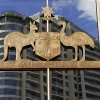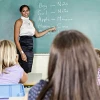23 careers found.
Education aides assist teachers with the supervision and support of students and the delivery of learning programmes. They also provide support and assistance to students with special needs, including those with physical or intellectual disabilities, or behavioural issues.
Education managers may be responsible for a number of activities in the educational sector, ranging from the development of policy to the development and review of course curricula and teaching materials. They may have an advisory role, preparing reports, information papers and submissions, or they may advise senior management or interdepartmental committees on education strategies and initiatives. They may also be involved in the management of educational systems at regional, district or state levels, and may have to manage financial and physical resources, or recruit educational officers.
Education officers undertake educational research and develop course materials and curricula.
Fitness instructors are involved in the assessment, teaching, training and supervision of a variety of people in health and fitness clubs, gymnasiums, sports centres and community recreation organisations. Fitness instructors may specialise in fields such as aerobics, aqua-fitness, personal training, exercise for specific groups (such as older people), resistance training and swimming.
House parents are concerned with all the tasks relating to the personal care, boarding accommodation, meals, study, recreation and weekend activities of children and adolescents in a residential establishment. They usually live in or near the boarding establishment.
Museum attendants work in the public spaces of museums, greeting visitors and attending to enquiries, and ensuring the protection of exhibits.
Public education officers design and deliver specialised education programs to educate school or community groups on different issues or run education programs for institutions such as museums, zoos or art galleries.
Public servants in the Australian Public Service (APS) work in a wide range of areas such as community and social services, defence, economic management, education, employment, foreign affairs, health, housing, industrial relations and transport. They are employed in a variety of clerical, technical and professional careers.
State government public servants are government employees who work in any of the departments of a state or territory government.
Research and development managers plan, administer and review the research and development program and activities of an organisation.
Research officers plan and conduct research into a variety of issues or areas.
School principals provide educational leadership for primary and/or secondary schools and their communities.
Art teachers in secondary schools teach students the practical skills, theory and history of art. Students receive tuition in aspects such as painting, drawing, printmaking, photography, sculpture and ceramics. Art teachers may specialise in one or more aspects of art in their tertiary studies (such as history and appreciation of art, ceramics, drawing, film and video, painting, pottery, printmaking, sculpture and visual communication), as well as studying the elements of design, graphics, product design and environmental studies.
Early childhood teachers plan and conduct education programmes for young children while helping them learn early social, cognitive and physical life skills.
Teachers of English as a Second Language (ESL) teach, and assist other teachers to teach, students whose first language or dialect is not Standard Australian English to become proficient with the English language.








